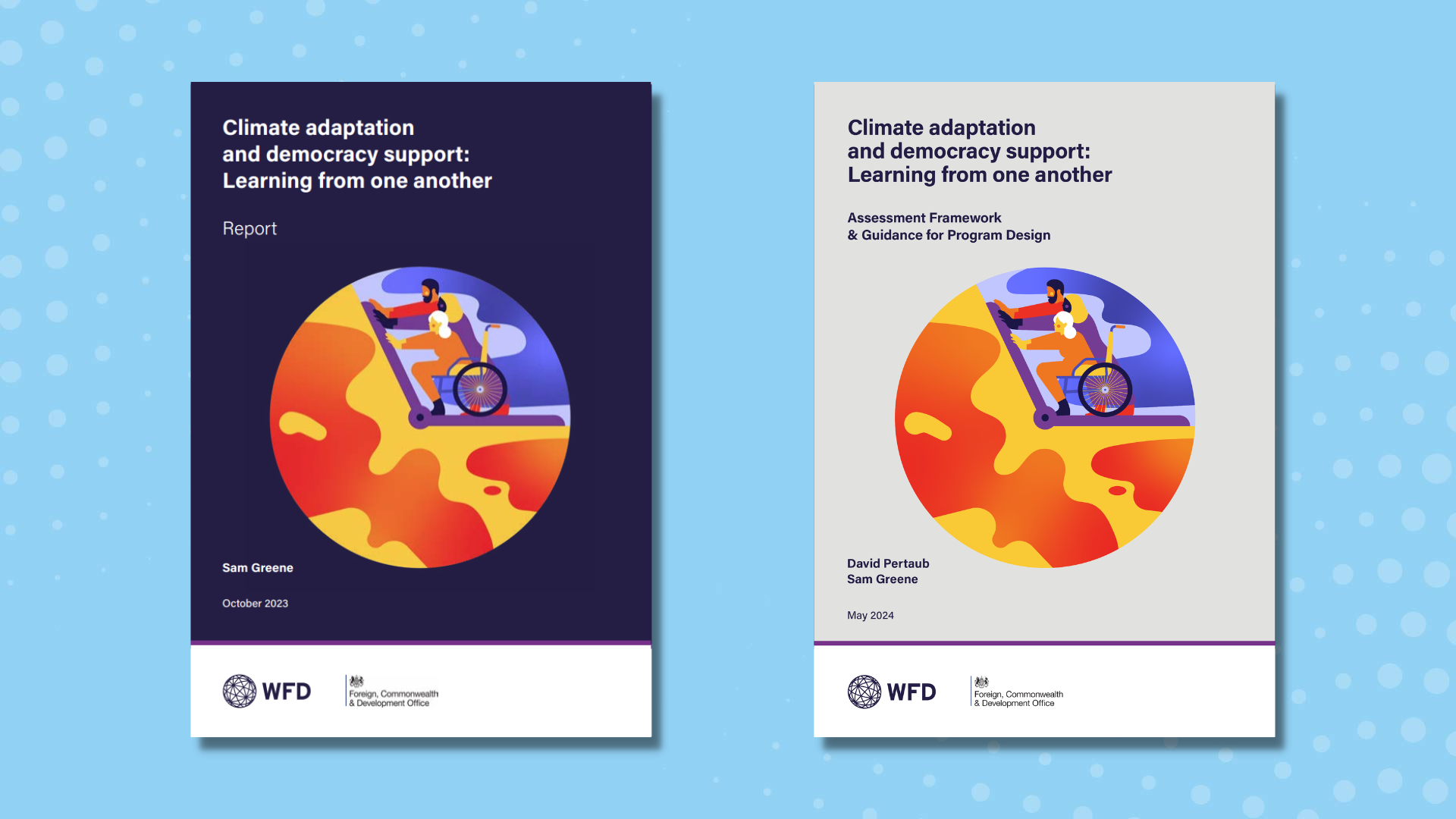Drawing on emerging evidence and case studies, this report discusses the conceptual and practical overlaps between successful climate adaptation and the three pillars of environmental democracy: access to information about the environment, public participation in decision making, and the right to justice or legal redress for environmental damages. It is published alongside a framework to guide practitioners to assess climate adaptation programmes through a lens of environmental democracy.
Introduction
Action on climate change is vital to stopping the destabilisation of democracies - and to strengthen them. The climate change adaptation community has long understood the importance of the principles of transparency, participation, and accountability for successful adaptation, which resonate with the three pillars of environmental democracy. The last Intergovernmental Panel on Climate Change (IPCC) report recognised (implicitly) that democratic principles are enablers of effective climate action.
Facing the growing evidence that higher levels of democratic practice are conducive to greater environmental governance outcomes, it follows that better democracy will deliver better adaptation, and that, in fact, good adaptation can strengthen democracy. This is a virtuous circle that we cannot afford to ignore, because the reverse is also true – it will be very hard to advance resilience in societies with weak environmental democracy and rule of law. However, participation in climate adaptation is not merely a practical option. It is also an ethical necessity.
This paper is a call to act upon the powerful nexus between climate change adaptation and democracy, to help forge a more resilient and just world, where democratic ideals not only endure but thrive in the face of climate adversity. The paper, and the related assessment tool, makes clear the interconnectedness between the principles of environmental democracy, the principles for locally-led adaptation, and the components of climate-resilient development, and articulates how increased participation of all people in decision-making and strong environmental rule of law are crucial to delivering effective action on climate change. A wealth of entry points to exploit these synergies through adaptation and democracy support programming are identified, to help envisage a future where democratic ideals inform innovative climate adaptation action.
Assessment Framework and Guidance for Programme Design
This framework is intended to help assess the potential of a climate adaptation program or project as a vehicle for deepening citizen participation and democratic accountability in governance. It offers an analytical framework for systematically reviewing the design architecture and performance of a program from an “environmental democracy” perspective and assessing its democratic credentials.
In the second edition, new sections have been added to provide concrete guidance for the design of programs that bring together principles for effective adaptation and the principles for environmental democracy. This guidance can support the integration of environmental democracy principles into climate adaptation program design, or vice versa.
This framework can be used by a variety of different actors interested in assessing the degree and quality of democratic accountability and citizen participation in an adaptation program or project, or in designing new projects and programs that draw on these principles.
This may be national level actors, civil society organisations and government institutions interested in furthering democratic practices and/or a good governance agenda; equally, given the established links between meaningful citizen engagement and effective adaptation/ avoidance of maladaptation, it could be used by national level organizations keen to promote more effective and transformative adaptation investment.






